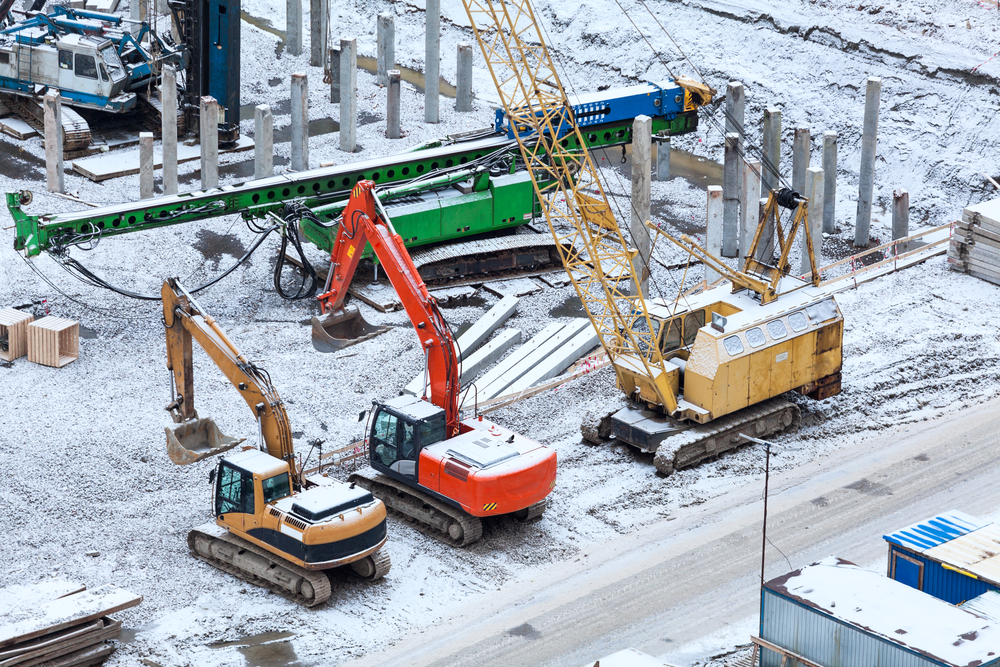For most areas in the US, winter is accompanied by extreme cold and storms. Many institutions are forced to close and construction work is affected severely. Unexpected closing may lead to abrupt claims, delays in the planned schedule, and change of order requests. To justify the construction weather delays to the territory owner, you need to demonstrate 3 things:
-
The delayed work directly affects the closeout time
-
The derailment is in line with the contract terms and conditions
-
The weather problem is in excess of what is deemed normal for the prevailing season
Remember to create a document with the particular activities that have been affected by bad weather
Effects of Poor Weather on Construction Projects
During an excavation, rain can turn freshly dug holes into mud pits. So, any machine driven into the holes ends up being swallowed or damaged. You might want to reschedule such activities as pouring concrete. High winds can put a startling halt to a roofing job or a high-rise building. The extent of delays caused by hurricanes, tornadoes, or floods is immeasurable. Bad weather affects the availability of workers too. It can also derail a restaurant construction timeline.
Notice and Recovery
Buildings differ significantly but most experience construction weather delays at some point. To avoid expenses for liquidated damages, you need to create a delay clause for a natural disaster in the contract agreement. The clause must define two things:
-
What you, the project manager, gets in the event of a delay. It can be a time extension, monetary compensation or both
-
The estimated time of delay
Keep track of the work that is impacted by delays. Record the unaccomplished tasks in a punch list.
Budgeting for Weather Delays
Apart from adding time allowances for unexpected weather, you should also budget with bad weather in mind. Most activities derailed by weather simply cost more money. For instance, more vehicle fuel is needed during winter. Extra water is required for the working crew in summer. The building needs protectant materials when the rain starts.
The project budget estimates created in the planning stage must factor in the weather. Avoid scrambling for extra funds in the middle of the project.

Weatherproofing
Besides cushioning the construction budget, have a weatherproofing plan before the work begins. The weather mostly affects the construction materials and equipment. A slight change in temperatures can have a huge impact on these tools. To ensure the safety of the site and workers, take the following precautions.
-
Keep the masonry kits dry during winter
-
Provide cool storage for bricks during summer so they don’t crack
-
Keep the water pumps close to the job site to eliminate any excess water that might get in the way
-
Offer personal protection equipment to the construction crew
-
Use a polyurethane liquid membrane to cover the flat roof area
-
Use hessian sheets to protect brickwork and large blocks from rainwater
Construction tools and materials cost a lot. So, it makes sense to invest in their protection against extreme weather. Otherwise, you will risk wasting valuable materials and creating unnecessary costs.
Protecting the Staff
Weatherproofing the site is just as important as keeping the staff protected. The staff is a huge resource so their safety and comfort are essential. Raincoats are not enough. Ensure that they have personal protective equipment.
The work gear must be fully functional, cool enough for summer and warm enough for winter. In addition, safety mechanisms such as guardrails must be installed in the right places. Emergency kits also minimize the risk of injuries to the staff in extreme conditions.
Dealing with construction weather delays well means taking care of your workers and equipment, and clearly communicating changes to the construction schedule. Be sure to give a formal notice as soon as there is a potential weather delay. Then, give a recovery schedule that will get the project finished on the agreed end date. Bad weather won’t completely derail your plans as long as you prepare well for it.
Image via Shutterstock by Kekyalyaynen













